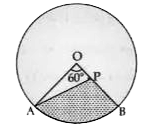IF a,b and c are in arithmetic progression, then b−ac−b is equal to: Solution in Kannada
ba
0
1
2a
The correct Answer is:C
Step by step video, text & image solution for IF a,b and c are in arithmetic progression, then (b-a)/(c-b) is equal to: by Maths experts to help you in doubts & scoring excellent marks in Class 10 exams.
Topper's Solved these Questions
- BOOK - OSWAAL PUBLICATIONCHAPTER - ARITHMETIC PROGRESSIONSEXERCISE - VERY SHORT ANSWER TYPE QUESTION8videos
ARITHMETIC PROGRESSIONS
- BOOK - OSWAAL PUBLICATIONCHAPTER - ARITHMETIC PROGRESSIONSEXERCISE - SHORT ANSWER TYPE QUESTION15videos
ARITHMETIC PROGRESSIONS
- BOOK - OSWAAL PUBLICATIONCHAPTER - AREAS RELATED TO CIRCLES EXERCISE - LONG ANSWER TYPE QUESTIONS - I20videos
AREAS RELATED TO CIRCLES
- BOOK - OSWAAL PUBLICATIONCHAPTER - CIRCLES EXERCISE - TEXTBOOK CORNER (EXERCISE 4.2)13videos
CIRCLES
Similar Questions
What is the common difference between the consecutive terms of an A.P.
04:15View SolutionHow many two digit numbers are divisible by 3?
02:24View SolutionIn the given figure, AOB is a sector of angle 60∘ of a circle with centre O and radius 17 cm . If AP ⊥ OB and AP = 15 cm find the area of the shaded region.
 07:49View Solution
07:49View SolutionFrom a point Q ,the length of the tangent to a circle is 24 cm and the distacne to Q from the centre is 24.5 cm.The radius of the circle is
(a) 4.92 cm
(b)12 cm
©15 cm
(d)24.5 cm
01:18View SolutionIn DeltaABC if sinA.sin(B-C)= sinC.sin(A-B),then-(A!=B!=C) (A) tanA, tanB, tanC are in arithmetic progression (B) cotA, cotB, cotC are in arithmetic progression (C) cos2A, cos2B, cos2C are in arithmetic progression (D) sin2A. sin2B. sin2C are in arithmetic progression
04:35View SolutionIf a,bandc are in arithmetic progression, then b+c,c+aanda+b are in
06:28View SolutionIf a,bandc are positive numbers in arithmetic progression and a2,b2andc2 are in geometric progression, then a3,b3andc3 are in
(A) arithmetic progression.
(B) geometric progression.
(C) harmonic progression.04:32View SolutionIf a, b and c are three positive numbers in an arithmetic progression, then:
03:49View SolutionIf the roots of (a−b)x2+(b−c)x+(c−a)=0 are real and equal, then prove that b, a, c are in arithmetic progression.
08:08View SolutionIf a, b, C are direction ratios of line which lies 2 and 10 and such that (i) the sum of a, b, c is 19 (ii) a, b, 11 are in arithmetic progression (iii) a, c, 27 are in geometric progression then the values of a, b, c are
05:43View Solutionlet a<b, if the numbers a,b and 12 form a geometric progression and the numbers a,b and 9 form an arithmetic progression , then (a+b) is equal to:
04:45View SolutionThree numbers a, b and c are in geometric progression. If 4a, 5b and 4c are in arithmetic progression and a+b+c=70, then the value of |c−a| is equal to
04:41View SolutionLet three positive numbers a, b c are in geometric progression, such that a, b+8, c are in arithmetic progression and a,b+8,c+64 are in geometric progression. If the arithmetic mean of a, b, c is k, then 313k is equal to
08:17View SolutionIn △ ABC if a,b and c are in arithmetic progression then cos A + 2cosB + cosC=
06:48View Solutionযদি a,b,c বিপরীত প্রগতিতে থাকে , তবে প্রমাণ করো যে, ab+c,bc+a,ca+b বিপরীত প্রগতিতে থাকবে (a+b+c≠0)।
06:48View Solution
